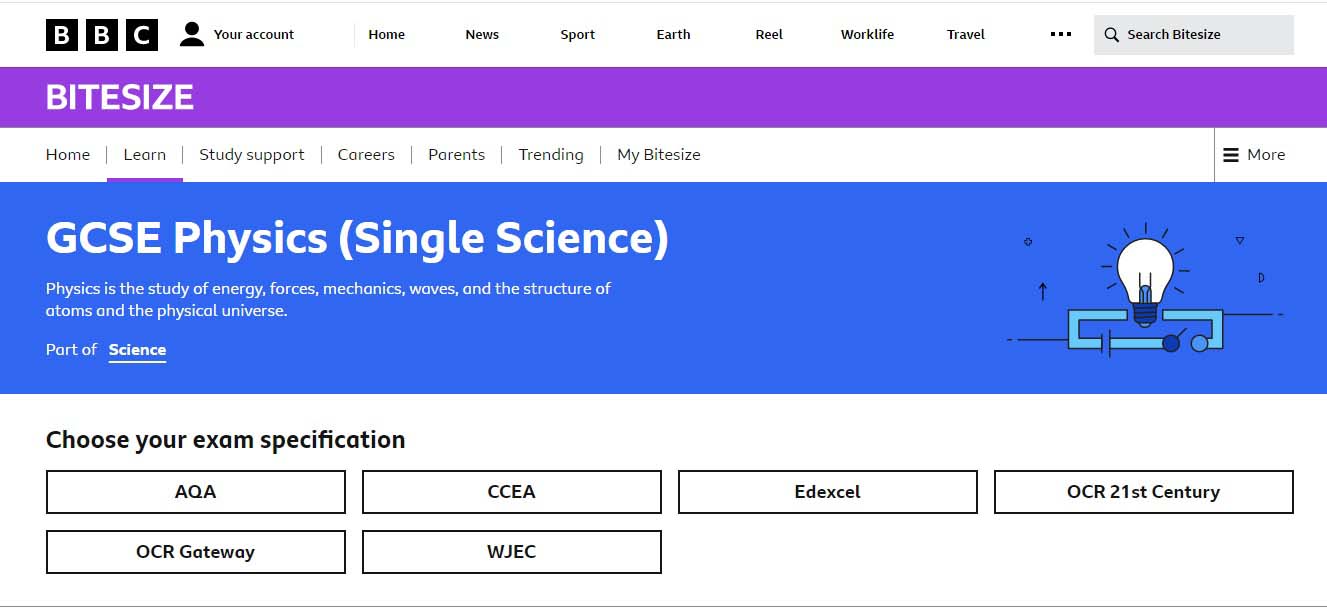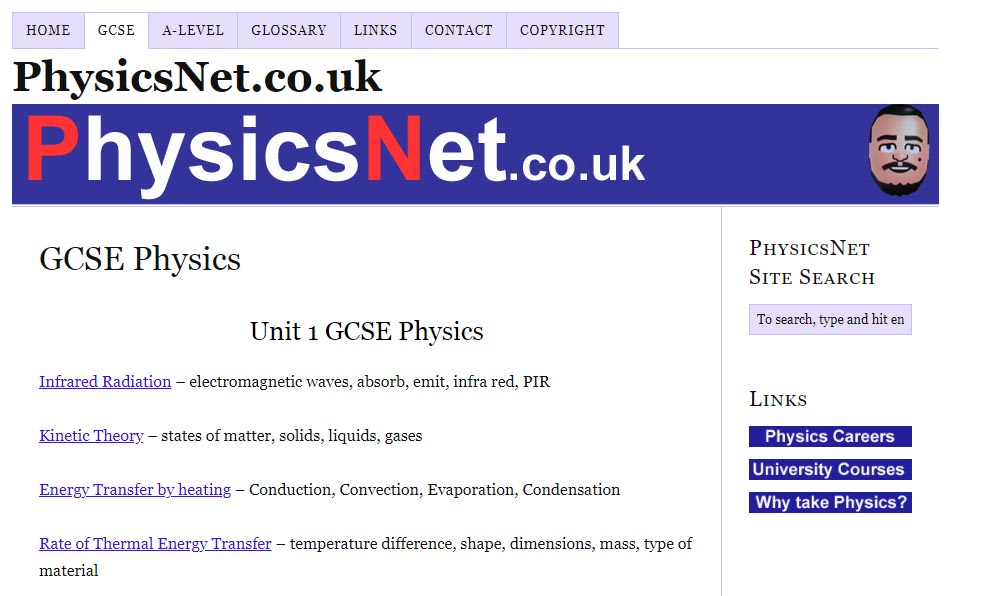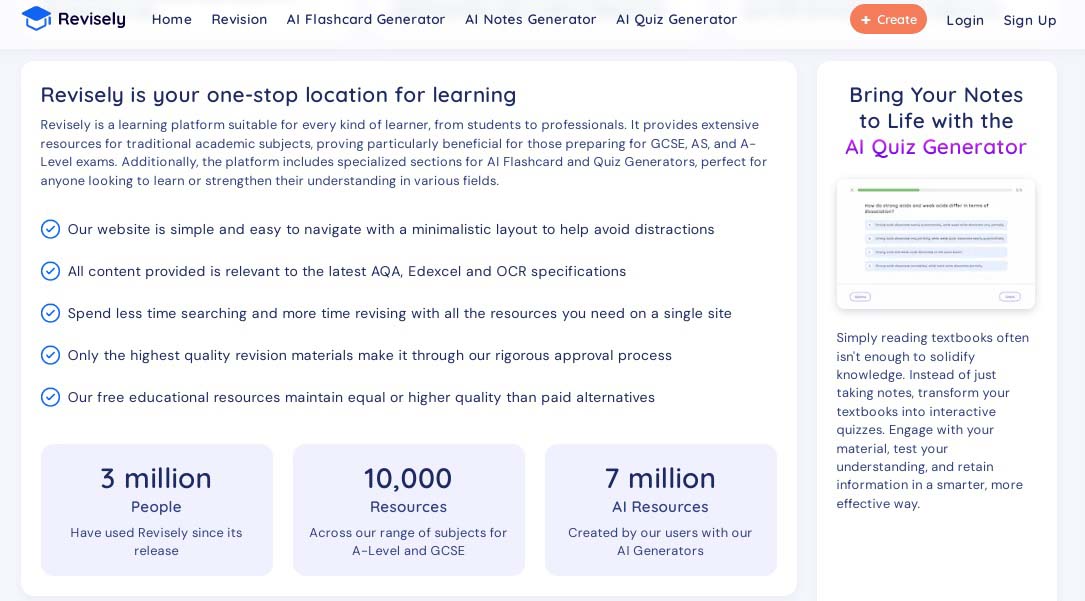GCSEs are the gateways to further higher education and professional opportunities. For that reason, studying for GCSEs at the end of 11th grade can be overwhelming. However, with the proper study habits and revision guides, getting ready for GCSE physics exams can be enjoyable. This article provides a comprehensive guide on the best way to revise physics GCSE.
- Start by prioritising the challenging topics to find out what to revise for physics GCSE.
- Work through past papers and marking schemes.
- Have a personalised study plan.
- Don’t overlook the power of adequate sleep, balanced diet, and exercise.
- Utilise practical tools such as YouTube channels and revision websites.
- Use the study and revision guide of your exam board.
Understanding the Importance of Effective Revision for Physics GCSE
Mastering Physics concepts can be beneficial beyond the exam, as you will gain practical skills and knowledge for higher education and the job market. Besides being able to pursue physical university fields such as Space Physics, Medical Physics, and engineering, mastering GCSE-level physics can help you have better career options in non-related areas. Gaining a solid understanding of physics is helpful for improving problem-solving and analysis skills.
GCSE physics exams consist of two papers, which are usually equally weighted. Although the exam format and frame are clear, GCSE Physics can be a challenging subject to master. The good news is that with the proper study techniques and revision plans, gaining a high grade in GCSE physics can be easy. Besides increasing confidence, practical revision habits help you remember the concepts and perform better on GCSE physics exams.
How to Create a Structured Revision Timetable
A well-organised revision plan allows you to cover all the necessary topics for your GCSE physics exam. Creating a personalised and practical timetable helps you reduce anxiety and stay on top of physics lessons. Below are helpful revision guides and strategies.
The 1st Step: Create a Timetable
The first step in creating a personalised and practical timetable for GCSE revision is prioritising your tasks, including your classes and personal activities. By doing so, you can usefully assess your available study time. Generally, 120 hours of revision for GCSe physics should be enough. However, 120 hours is just a number; personalised plans and timetables are more flexible.
The 2nd Step: Break down the Topics
The second step is breaking down physics lessons and exam topics into three categories:
- Topics that you are confident in.
- Topics that you are uncertain about and may need more time.
- Topics that you certainly don’t know.
Start with the things you don’t know, read your textbooks, and ask for help if needed. Dedicate longer study time or more frequent study sessions throughout the week to these challenging topics.
|
How to prioritise based on difficulty? If you are unsure about your knowledge and skill level, it’s a good idea to read through past papers, homework, and assignments to identify your areas of difficulty. |
The 3rd Step: Be Honest
Be honest while planning. Your physical and emotional well-being is essential while getting ready for GCSE exams. Incorporating breaks and leisure activities that don’t take the whole day and make you feel refreshed, such as a 20-minute moderate exercise session, is helpful.
|
Time blocking is a planning technique that involves breaking down tasks into small steps, like a to-do list. This technique requires estimating how long a task would take. Time blocking allows GCSE students to stay focused and eliminate time-consuming tasks. One of the most excellent tools for this type of planning is Google Calendar. While the time-blocking technique is practical, it can be stressful. If this planning technique doesn’t help you, it’s best not to continue with it. |
Utilising Different Learning Styles for Physics Revision
While studying for GCSEs, it’s helpful to consider your specific learning style. By doing so, you will find the revision sessions more enjoyable and effective. How to identify your preferred learning style? The primary learning styles include visual, reading/writing, auditory, and kinesthetic. It’s a great idea to take a look at your experience of learning. Also, thinking about your strong traits, such as being a solid visualiser, enjoying group discussions, taking notes while learning, etc., the table below can help you:
| How to Revise GCSE Physics Based on Learning Style | ||
| Learning Style | Personality Traits | Study and Revision Tips |
| Visual | Prefers pictures, diagrams, colours, mind maps, taking detailed notes | Use flashcards, diagrams, and mindmaps |
| Auditory | Likes discussions, lectures, podcasts, | Use mnemonics, ask someone to explain topics |
| Kinesthetic | Great at experiments, hands-on activities, building models | Conduct experiments, walk while studying |
| Reading/Writing | Enjoys reading, learning by textbooks, prefers summarising key points | Rewrite notes, summarise concepts |
Recommended Online Resources and Study Guides for Physics
There are several resources for GCSe physics revision. It’s essential to find your personal best way to revise physics GCSE, based on your learning style and weaknesses. Take a look at the list of top-rated online resources and study guides:
Top Websites for GCSE Physics
- BBC Bitesize
This website offers practical resources for GCSE physics that you can use while revising. BBC Bite-size allows you to find helpful GCSE resources and key points based on your exam board.

2. Physics Net
PhysicsNet.co.uk provides lessons with visual guides and simplified explanations.

3. Revisely
This website provides content relevant to the latest major exam boards. Revisely also has an AI note and flashcard generator feature.

YouTube Channels for GCSE Physics and Combined Science
- Physics Online
This channel offers easy-to-understand lessons on challenging physics topics for GCSE students. Physics Online also offers time management strategies for GCSE exams.
2. My GCSE Science
According to students, this channel is like a teacher doing your revision with you. My GCSE Science offers lessons aligned with the GCSE curriculum for physics, chemistry, and biology.
3. Physics Girl
Although this channel does not specialise in GCSE physics topics, you will be able to find fun and engaging lessons explaining physical concepts such as the particle model. Physics Girl is also a great place for students with a scientific curiosity.
Tips for Managing Stress and Staying Motivated During the Revision Period
Maintaining physical and emotional health during the revision period is as important as studying. The good news is, it is as simple as eating healthy, nutritious foods, taking a short walk and getting adequate sleep.
Physical activity improves focus and helps you sleep better and have more energy the next day. Make sure to include a moderate exercise plan while scheduling your revision. Strategies for stress management, such as relaxation techniques (deep breathing, meditation), are also helpful. Below are helpful tips to stay motivated during GCSE revision:
- Be realistic while goal setting.
- Identify things that trigger your stress.
- Use study aids that work best for you.
- Study in a quiet space with minimal distractions.
- Ensure adequate lighting and comfortable seating.
- Based on your learning preference, consider peer support and group study.
- For more management of time, avoid procrastination.
- Focus on quality over quantity.
- Don’t multitask.
- Reward yourself for milestones achieved.
- Never underestimate the role of adequate sleep, hydration, and a balanced diet.

Strategies for Practising Past Papers and Improving Exam Technique
Aside from gaining an overall understanding of the GCSE exam format, working on past papers allows you to figure out your weaknesses. Besides finding out what to revise for physics GCSE, past papers are great motivation boosters, as you will feel confident over time. Revision Science offers past papers based on your exam board (AQA, Edexcel, OCR, Eduqas). The techniques below help use papers to improve performance:
- Start revising by topic, ideally, the topics you find challenging.
- Use the study and revision guide of your exam board.
- Don’t focus on a sole question format; practise all question types, such as multiple-choice questions.
- Be consistent.
- Practice questions, not just the marking schemes.
- Try timed practice to stimulate the exam.
- Pay attention to command words such as describe, analyse, compare, and evaluate.
- Ask for help or feedback from an online GCSE physics tutor.
- Pay attention to calculations, formulas and mathematics.
- Practice questions of detailed practical work
- Practise all sections, such as “working scientifically”.
Test-Taking Strategies for the Physics GCSE
Let’s take a look at the most practical on-the-day tips for exam success:
- Get a good night’s sleep
- Consider arriving early for more preparation.
- Review the paper quickly.
- Read the instructions and questions carefully.
- If you find a question challenging, mark it and move on. Get back to the question if you have more time.
- For multiple-choice questions, try eliminating choices. (in case you have difficulty finding the answer)
- Underline the keywords: describe, explain, etc.
- Pay attention to units throughout your calculations.
- Stay calm and focused.
- Dedicate a couple of minutes to review your answers at the end of the exam session.
What are the best resources to revise GCSE maths? Read on to find out more:
GCSE Maths Revision Websites
Start Revising GCSE Physics with an Online Tutor
Exam revision for GCSE physics can be straightforward by using the right strategies and structured study plans. Remember that physical and emotional well-being are very important while studying for GCSEs.
At Ostado, you will find the most qualified physics tutors to help you conquer all topics and gain skills for the GCSE exam. All the lessons and activities will be based on your learning style and pace, from working through past papers and mark schemes to mathematical physics and problem-solving. Our GCSE physics tutors also help you build strong revision and study habits.
revise for GCSE physics?
- How should I revise for GCSE physics?
- Start by protecting the topics you don't know.
- Set realistic goals.
- Work through past papers of your specific exam board.
- Consider taking mock exams to improve time management for the exam day.
- What is the best way to revise physics?The best way to revise physics GCSE depends on your learning style and weaknesses. The one-word answer for everyone is "consistency". Consider identifying your struggling concepts and topics, work through past papers and have a structured study plan.

